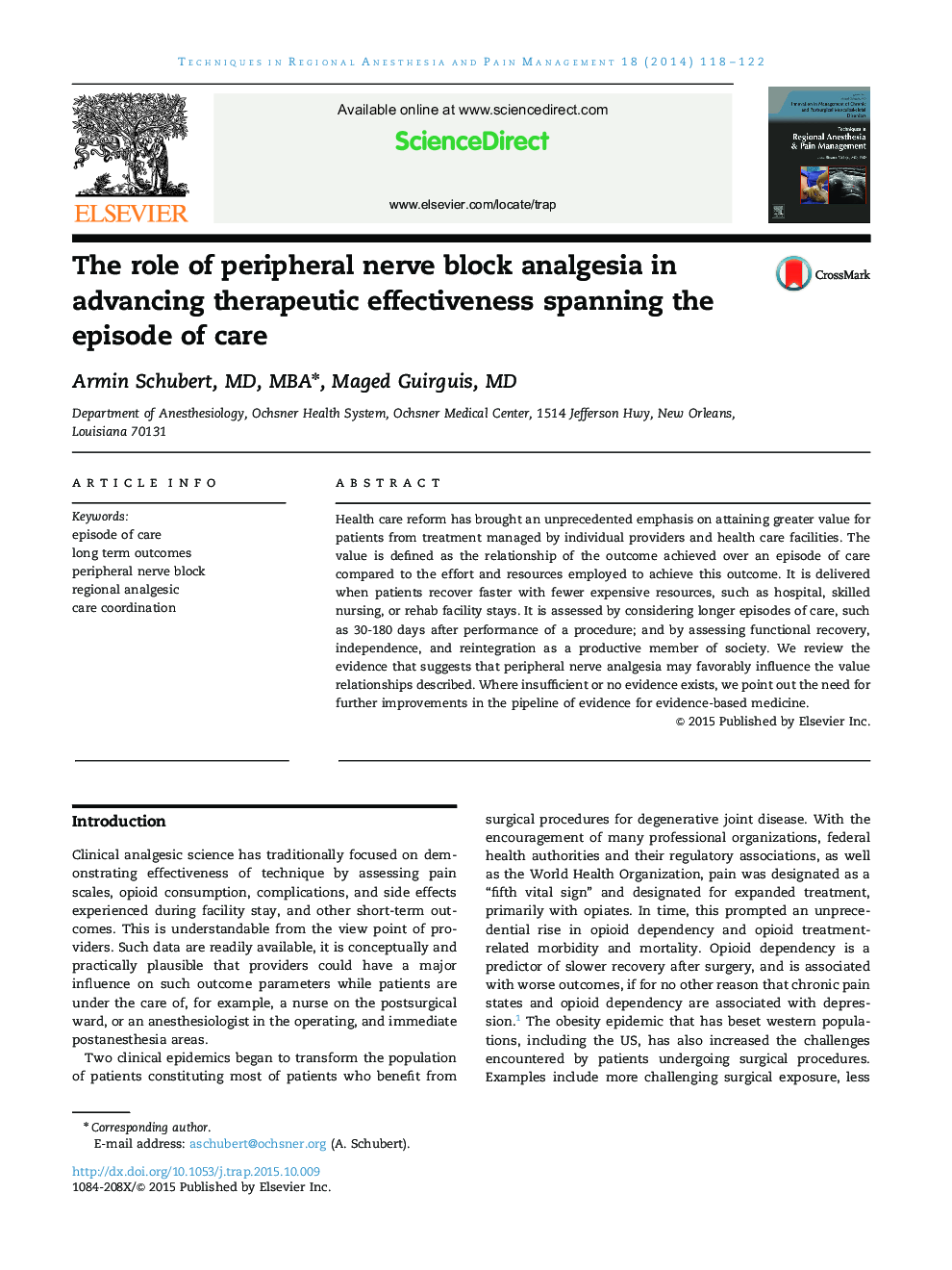| Article ID | Journal | Published Year | Pages | File Type |
|---|---|---|---|---|
| 2772092 | Techniques in Regional Anesthesia and Pain Management | 2014 | 5 Pages |
Abstract
Health care reform has brought an unprecedented emphasis on attaining greater value for patients from treatment managed by individual providers and health care facilities. The value is defined as the relationship of the outcome achieved over an episode of care compared to the effort and resources employed to achieve this outcome. It is delivered when patients recover faster with fewer expensive resources, such as hospital, skilled nursing, or rehab facility stays. It is assessed by considering longer episodes of care, such as 30-180 days after performance of a procedure; and by assessing functional recovery, independence, and reintegration as a productive member of society. We review the evidence that suggests that peripheral nerve analgesia may favorably influence the value relationships described. Where insufficient or no evidence exists, we point out the need for further improvements in the pipeline of evidence for evidence-based medicine.
Related Topics
Health Sciences
Medicine and Dentistry
Anesthesiology and Pain Medicine
Authors
Armin MD, MBA, Maged MD,
